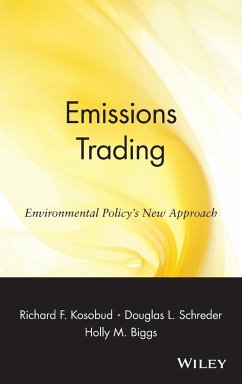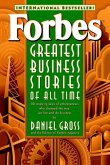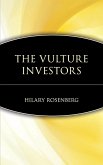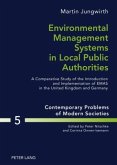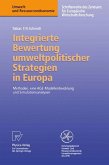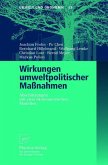Emission trading is a regulatory compliance that allows pollution sources (namely chemical and manufacturing firms) to buy and sell emissions of certain contaminants that are regulated by the U.S. Environmental Protection Agency (EPA). This book defines and overviews the business issues related to emissions trading and offers guidelines for applying this controversial policy effectively.
Der Emissionsrechtehandel ist eine rechtliche Vereinbarung, die es Emissionsquellen (chemischen - und Fertigungsbetrieben) erlaubt, Emissionsrechte bestimmter Schad- und Giftstoffe zu kaufen oder zu verkaufen. Der Ausstoß dieser Stoffe, insbesondere von Stickoxiden, flüchtigen organischen Verbindungen, Schwefeldioxiden und Kohlenmonoxiden, wird von der EPA, der amerikanischen Umweltschutzbehörde, geregelt. Dieses Buch definiert und erläutert unternehmensbezogene Fragen im Bereich des Emissionsrechtehandels und bietet Anleitungen für die effektive Nutzung dieses kontrovers diskutierten Themas. "Emissions Trading" wurde von Spitzenforschern auf diesem Gebiet geschrieben. Sie haben u.a. eine gemeinsame Sprache und Terminologie für die Diskussion des Emissionsrechtehandels erarbeitet haben und bieten Tipps an für die Umsetzung in die Praxis. Ein Buch aus der NAM (National Association of Manufacturers)-Reihe; mit einem Vorwort von NAM-President Jerry Jasinowski.
Der Emissionsrechtehandel ist eine rechtliche Vereinbarung, die es Emissionsquellen (chemischen - und Fertigungsbetrieben) erlaubt, Emissionsrechte bestimmter Schad- und Giftstoffe zu kaufen oder zu verkaufen. Der Ausstoß dieser Stoffe, insbesondere von Stickoxiden, flüchtigen organischen Verbindungen, Schwefeldioxiden und Kohlenmonoxiden, wird von der EPA, der amerikanischen Umweltschutzbehörde, geregelt. Dieses Buch definiert und erläutert unternehmensbezogene Fragen im Bereich des Emissionsrechtehandels und bietet Anleitungen für die effektive Nutzung dieses kontrovers diskutierten Themas. "Emissions Trading" wurde von Spitzenforschern auf diesem Gebiet geschrieben. Sie haben u.a. eine gemeinsame Sprache und Terminologie für die Diskussion des Emissionsrechtehandels erarbeitet haben und bieten Tipps an für die Umsetzung in die Praxis. Ein Buch aus der NAM (National Association of Manufacturers)-Reihe; mit einem Vorwort von NAM-President Jerry Jasinowski.

